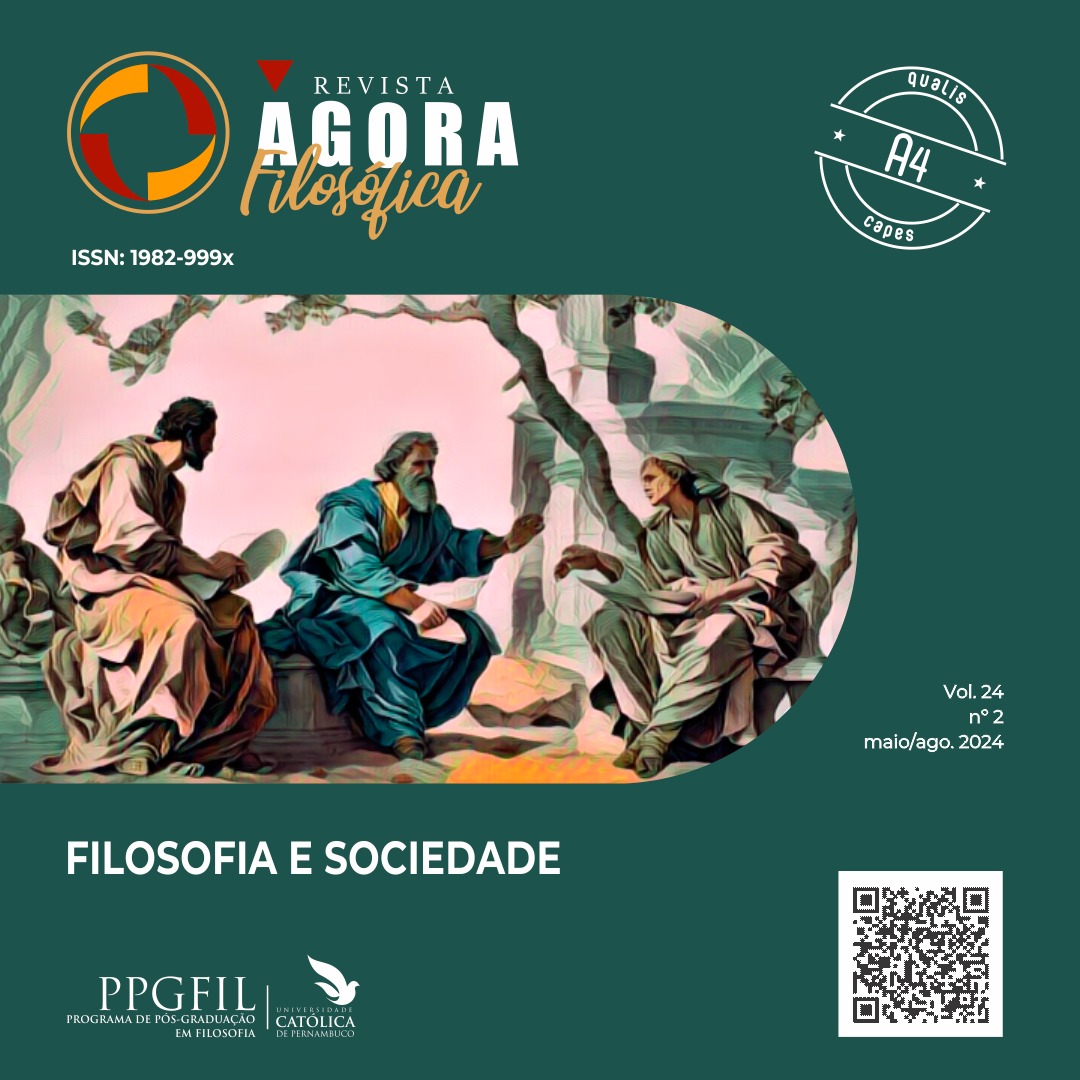Making Society think: bases of a Symbolical consciousness
DOI:
https://doi.org/10.25247/P1982-999X.2024.v24n2.p05-17Keywords:
virtues, moral ethics, symbolic consciousness, pratical loveAbstract
The Society (ndônga, in kikongo language) is responsible for the education of the individual (muntu), while the symbolic consciousness that prioritizes the freedom of muntu is inalienable due to the fact that the muntu is included, from early childhood, in “thinking society”. Face to the technological challenges of the life, where Philosophy is diminished as well, we ask to ourselves: how Africa can resist the new configurations of the 21st century? This article tries to answer in this way: the African toungue and culture (fields of alienation), as well, seem to be one of several way, if associate to the African Philosophy.
Downloads
References
BATSÎKAMA, Patrício. “Mbôngi’a ñgîndu: a escola de ciências políticas”, In: Revista Transversos, Universidade Estadual de Rio de Janeiro, n. 14, abr., p. 478-502, 2019.
BATSÎKAMA, Patrício. Filosofia no antigo Kôngo. Recife: Edições Universitárias de Pernambuco, 2024.
DIOP, Cheikh Anta. Nations nègres et culture: de l’Antiquité nègre egyptienne aux problèmes culturels de l’Afrique noire d’aujourd’hui. Paris: Presence Africaine, 2021.
DURKHEIM, Émile. Sociologie et philosophie. Paris: P.U.F., 2010.
ELIAS, Nobert. La dynamique sociale de la conscience. Sociologie de la connaissance et des sciences. Paris: La Découverte, 2016. p. 69, 116, 149, 177, 211, 245.
FOUCAULT, Michel. Surveiller et punir: naissance de la prison. Paris: Gaillimard, 1975.
FREIRE, Paulo. Educação como prática da liberdade. Rio de Janeiro: Paz e Terra, 1967.
HABERMAS, Jürgen. Consciência moral e agir comunicativo. Rio de Janeiro: Tempo Brasileiro, 2003.
KANT, Immanuel. Crítica da razão pura. Petrópolis: Vozes, 2015.
LAMAN, Karl (1936), Dictionaire kikongo-français, Bruxelas: Desclé.
MOORE, Carlos. A África que incomoda. Belo Horizonte: Nandyala, 2008.
MORIN, Edgar. Le défi de la complexité. In: Chimères, Revue des schizoanalyses, n.º 5, p. 1-18, 1988.
NGOMA-BINDA Phambu. Le Nzola comme philoculture: une philosophie kongo de l’existence. Paris: PAARI, 2023.
PLATÃO. Teeteto. Lisboa: Fundação Calouste Gulbenkian, 2010.
Downloads
Published
Issue
Section
License
Copyright (c) 2024 Patrício Batsikama

This work is licensed under a Creative Commons Attribution 4.0 International License.
You are free to:
- Share — copy and redistribute the material in any medium or format for any purpose, even commercially.
- Adapt — remix, transform, and build upon the material for any purpose, even commercially.
- The licensor cannot revoke these freedoms as long as you follow the license terms.
Under the following terms:
- Attribution — You must give appropriate credit , provide a link to the license, and indicate if changes were made . You may do so in any reasonable manner, but not in any way that suggests the licensor endorses you or your use.
- No additional restrictions — You may not apply legal terms or technological measures that legally restrict others from doing anything the license permits.
Notices:
You do not have to comply with the license for elements of the material in the public domain or where your use is permitted by an applicable exception or limitation .
No warranties are given. The license may not give you all of the permissions necessary for your intended use. For example, other rights such as publicity, privacy, or moral rights may limit how you use the material.
















